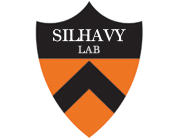The sigma(E) and the Cpx signal transduction systems control the synthesis of periplasmic protein-folding enzymes in Escherichia coli
Type
In Escherichia coli, the heat shock-inducible sigma-factor sigma(E) and the Cpx two-component signal transduction system are both attuned to extracytoplasmic stimuli. For example, sigma(E) activity rises in response to the overproduction of various outer-membrane proteins. Similarly, the activity of the Cpx signal transduction pathway, which consists of an inner-membrane sensor (CpxA) and a cognate response regulator (CpxR), is stimulated by overproduction of the outer-membrane lipoprotein, NlpE. In response to these extracytoplasmic stimuli, sigma(E) and CpxA/CpxR stimulate the transcription of degP, which encodes a periplasmic protease. This suggests that CpxA/CpxR and sigma(E) both mediate protein turnover within the bacterial envelope. Here, we show that CpxA/CpxR and sigma(E) also control the synthesis of periplasmic enzymes that can facilitate protein-folding reactions. Specifically, sigma(E) controls transcription of fkpA, which specifies a periplasmic peptidyl-prolyl cis/trans isomerase. Similarly, the Cpx system controls transcription of the dsbA locus, which encodes a periplasmic enzyme required for efficient disulfide bond formation in several extracytoplasmic proteins. Taken together, these results indicate that sigma(E) and CpxA/CpxR are involved in regulating both protein-turnover and protein-folding activities within the bacterial envelope.

